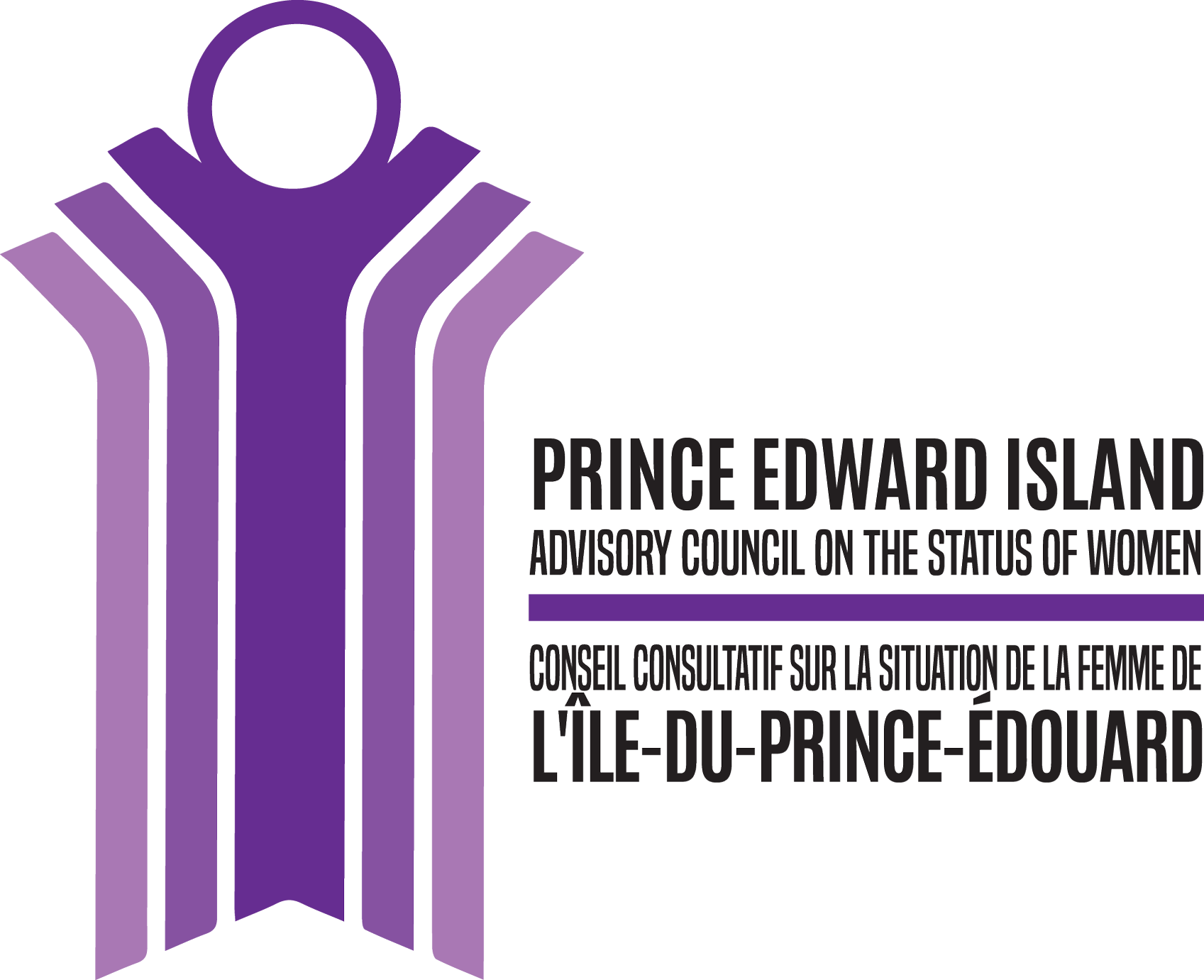 Good afternoon everyone. I would like to begin by acknowledging the elders in the room and thanking the Advisory Council on the Status of Women for bringing us together to remember victims of gender-based violence.
Good afternoon everyone. I would like to begin by acknowledging the elders in the room and thanking the Advisory Council on the Status of Women for bringing us together to remember victims of gender-based violence.
On December 6, 1989, I was a little girl living in rural PEI with my parents, siblings, and paternal grandmother. I was unaware of the horror that was unfolding in Montreal. However, I was already terribly familiar with the fear of gender-based violence. In fact, by that day in 1989 I had already stayed at Anderson House on two separate occasions.
After returning from one stay at Anderson House I can vividly recall sitting in our family vehicle in the driveway and listening to my father tell my mother that if she left with us again he would kill her and bury her body in the back yard. He pointed to a spot between our treehouse and the apple tree. He said no one would miss her because no one cared about her. I knew that wasn’t true because I loved my mom, but I didn’t say anything. Instead, I lived in fear that I would go to sleep and wake up to find my mother missing or go to school and come home to find her gone. I knew that if that happened, I could never tell anyone.
In the end, my mom survived thanks to the help and support of many people. It would take another stay at Anderson House and my mom finding her own way almost five years later before we left for good. In 2019, thirty years after first entering Anderson House, I returned. This time as a casual shelter worker, working alongside some of the same staff who supported my family years earlier. Returning to Anderson House and reflecting on the theme of “supporting survivors” reminds me of the many people who supported us.
When my dad was particularly angry my mom would call my great aunt, Chris, who lived close by, to come over to our house. He would meet Chris at the door with an arm stretched across the opening, signalling that she was not welcome. Chris would not be deterred. She would duck her head under his arm and walk into the house. Her presence immediately lifted the tension in the home. It’s only as an adult that I appreciate how brave Chris was to step up when she was called.
Another strategy my mom used to shield us was to take us to stay with one of our aunts when my dad was drinking. One evening she brought us to our great-aunt Ruthie’s. I remember standing at the top of her staircase and pleading with my mom at the bottom to stay with us for the night. I was scared my dad would hurt her. and she said, “I have to go back, I can’t leave grammy.” Although my grandmother was my father’s mother, my mother wouldn’t leave her behind to stay in a safe place.
Then there was my aunt Yvonne, one of the only adults I remember who said things like “I’m always here if you want to talk.” As an adult, it’s a phrase I’ve repeated dozens maybe hundreds of times in my own work.
All of these women showed up when they were needed. In turn, my mom has been there for other survivors when she was needed, whether it’s sharing her own story, listening to others, or offering support. People like my mom, Chris, Ruthie, and Yvonne remind me that much of the work of supporting survivors falls to individuals, particularly women. To the survivors and supporters in the room today – thank you for stepping up when you were needed. I see how brave you have been. Know that you have done a good job! It’s time we as a community help shoulder the responsibility you have carried.
My education and work in the area of feminism has helped me understand my experience with gender-based violence within a framework that didn’t place the blame on my mom for staying. Feminism showed me that our lived experience matters, that speaking truth to power matters, even when we’re scared, maybe especially when we’re scared. And that sharing our stories can expose the role systems and structures play in keeping people like my mother in violent situations and the way these systems and structures perpetuate violence. Importantly, intersectional feminism taught me that some women are more likely to experience violence than others. Indigenous women, women of colour, trans women, women with disabilities, and 2SLGBTQ+ people all experience higher rates of violence and are more likely to experience barriers to accessing supports.
In order to meaningfully address gender-based violence, we must move beyond calling on individuals to support survivors and engage in a collective movement that centres marginalized voices and demands widespread structural and systemic change. In many cases, the barriers my mother experienced thirty years ago are similar to the barriers today. To illustrate I’ll share three examples of barriers she faced that could be reduced through changes to systems and structures.
Firstly, lack of access to financial resources prevents many people from leaving abusive situations. In my mom’s case, my parents were self-employed, which meant she did not have access to her own finances. This made leaving with three small children and a vulnerable adult almost impossible. Ensuring people can leave abusive relationships requires a system that includes livable wages, basic income guarantee, and emergency financial support.
Secondly, women experiencing abuse still often feel forced to leave their homes, which is especially challenging right now with the housing crisis. When trying to leave, my mom searched for housing but struggled to find options that were not only affordable, but also accessible for my grandmother, who used a wheelchair. I did not fully understand the horror of the housing crisis until I started working at Anderson House, where every shift reveals the incredible stress clients are under to find a place to live. In order to address gender-based violence, immediate action is needed on the housing crisis and must include safe, affordable, and accessible options.
Finally, like many victims of gender-based violence, my mom was isolated from her family, friends, and means of transportation. I can recall my mom meeting my sister and me two bus stops from our home, having travelled two-and-a-half kilometres, first by foot and then hitchhiking, with our younger brother to intercept the school bus to ensure we didn’t go home that day. At other times, she was forced to call on friends and family to provide transportation out of the community. Access to affordable, Island-wide public transportation would help reduce barriers to leaving an abusive situation.
These are only three of many barriers. We must collectively tackle the difficult and necessary work of eliminating gender-based violence. It will require all of us working together as individuals, organizations, institutions, and governments.
A good portion of my adult life has been spent working to see more women elected to decision-making bodies. This work has been important to me because research shows that jurisdictions with higher percentages of women decision-makers are more likely to address issues like gender-based violence. I don’t think it’s a coincidence that the Premier’s Action Committee on Family Violence was initiated under the leadership of PEI’s first and only woman premier, Catherine Callbeck. Change is possible!
People say survivors are resilient. It’s true, I’ve built a good life, a joyful life, with meaningful work and relationships, but I haven’t done it on my own. I have privilege as a cis-gender, able-bodied, white person in this world. I’ve also had access to several protective factors, including adults who believed in me, a post-secondary education, the feminist community, and therapy. Even so, research shows I am more likely than someone who hasn’t experienced childhood trauma to develop chronic illnesses like heart disease, cancer, and stroke. Our work going forward must also address the trauma people who’ve experienced such violence hold.
Sometimes, when I’m driving home in the evening after a shift at Anderson House, I reach a beautiful point just before Vernon Bridge where Southern Kings and Queens is stretched out ahead of me. I find myself wondering how many children were scared to go home from school that day, how many mothers are putting children to bed not knowing if they will be there to see them in the morning. And in that moment, I know that I am willing to do whatever it takes to end gender-based violence.
If someone had told me thirty years ago that things would get better for me and my family, I don’t think I would have believed them. It would have been easier for me to imagine being here today lighting a candle for my mother than standing beside her sharing our story. But things did get better for me, for us. And it can for others too. It starts with hearing the stories of survivors about what they needed at the time, what they need now, and what they see needs to change – and changing it. Our cause is righteous. It requires us to act boldly, bravely, and with urgency.
~ Dawn Wilson was the guest speaker at the Memorial Service for Victims of Violence, Memorial Hall, Confederation Centre of the Arts, on December 6, 2019. Dawn is a beloved feminist leader in our community, Dawn is from Caledonia, Prince Edward Island. She studied women’s and gender studies at St. Francis Xavier University. She is the outgoing Executive Director of the PEI Coalition for Women in Government, a non-partisan organization dedicated to advancing women’s leadership in the political, civic, and democratic life of PEI. Dawn is also a blueberry grower, running a farm with her family.
* This video tells a personal story. Please do not share this video directly on social media. Please share the link to this blog post.
Thank you.


